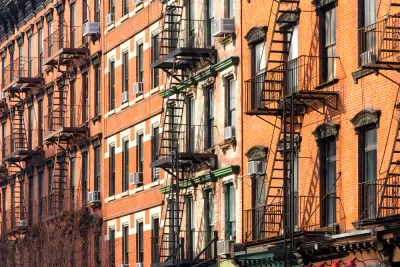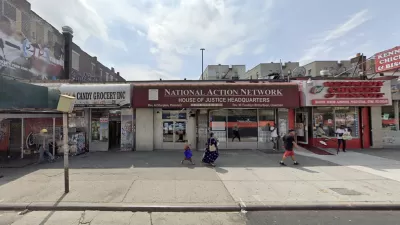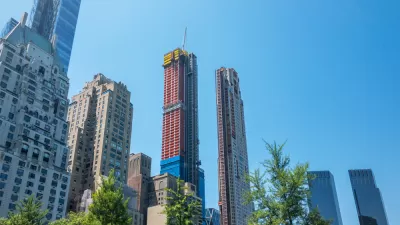The area could lose up to 500 units of affordable housing every year for the next 30 years if the city doesn't extend existing protections.

By 2040, affordability restrictions will expire for more than a fourth of all residential units in East Harlem, according to a new study by Regional Plan Association.
"A loss of regulated affordable housing of this magnitude would increase economic pressure on low and moderate-income residents," ultimately forcing many to leave, author Pierina Ana Sanchez warns in the abstract.
To prevent that outcome, the report proposes "requiring affordable housing created to guarantee affordability in perpetuity":
This can be done by restructuring existing programs, or supporting community and public ownership models including community land trusts, land lease agreements and expanded public housing … As urban areas become more attractive and new residents move in, there should be more efforts to shore up long-term residents’ ability to remain a part of the community.
It also locates opportunity in the Housing New York program, which will rezone the city to encourage residential development and to require inclusionary housing. Especially in gentrifying neighborhoods, those changes could create "a lab for the encouragement of inclusive and sustainable development."
The preservation of affordable housing is especially important to East Harlem and areas like it that have "historically welcomed people excluded by [overtly] discriminatory policies from living elsewhere," Sanchez notes:
Their displacement ultimately would be damaging for the city and for the entire region, which relies on having residents of diverse backgrounds, income levels and experiences to fill the range of jobs needed to make our economy function. And it would harm residents who would face leaving a community that is well connected to jobs, health care and education.
FULL STORY: Report: One-Fourth of East Harlem Units Could Lose Affordability Restrictions by 2040

Planetizen Federal Action Tracker
A weekly monitor of how Trump’s orders and actions are impacting planners and planning in America.

Congressman Proposes Bill to Rename DC Metro “Trump Train”
The Make Autorail Great Again Act would withhold federal funding to the system until the Washington Metropolitan Area Transit Authority (WMATA), rebrands as the Washington Metropolitan Authority for Greater Access (WMAGA).

DARTSpace Platform Streamlines Dallas TOD Application Process
The Dallas transit agency hopes a shorter permitting timeline will boost transit-oriented development around rail stations.

LA County Creating Action Plan to Tackle Extreme Heat
Los Angeles County is creating a Heat Action Plan to help communities stay safe during extreme heat, with steps like adding more shade, improving buildings, and supporting the neighborhoods most at risk.

Maryland Plans Quick-Build Complete Streets Projects
The state will use low-cost interventions to improve road safety in five Maryland counties.

Downtown Los Angeles Gears Up for Growth
A new report highlights Downtown L.A.’s ongoing revival through major housing projects, adaptive reuse, hospitality growth, and preparations for global events in the years ahead.
Urban Design for Planners 1: Software Tools
This six-course series explores essential urban design concepts using open source software and equips planners with the tools they need to participate fully in the urban design process.
Planning for Universal Design
Learn the tools for implementing Universal Design in planning regulations.
City of Charlotte
Municipality of Princeton
Roanoke Valley-Alleghany Regional Commission
City of Camden Redevelopment Agency
City of Astoria
Transportation Research & Education Center (TREC) at Portland State University
US High Speed Rail Association
City of Camden Redevelopment Agency
Municipality of Princeton (NJ)




























